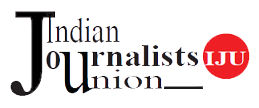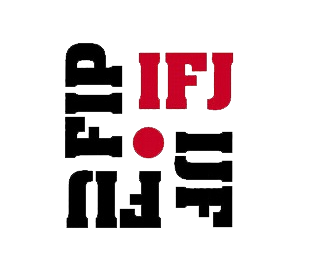- Geetartha Pathak
The rot set in our democratic institutions when political intervention made these vital institutions of our polity vulnerable to pressures from the powerful people. There has been a growing worry about the weakening of democratic institutions. Political pressures were always there on these institutions and on every arms of the government as a whole, but checks and balances by the regulatory bodies, social activism and media kept it within a limit. However, these democratic institutions are being transgressed since the BJP government came to power in 2014. Reserve Bank of India, Central Bureau of Investigation, Election Commission and National Board of Wildlife are a few institutions to name with.
What is happening in the top judicial institutions of our country is most disturbing. Holding of historic press conference by four Supreme Court judges, one of whom is present Chief Justice of India Ranjan Gogoi in January 2018 then raised alarm bells regarding the independence of the judiciary. Now with surfacing of the sexual harassment case against the Chief Justice of India by a former woman employee of the Supreme Court and subsequent developments have shaken the people's confidence in judiciary. After reports of the allegations thatbroke on April 20, a Special Bench was immediately convened to look into the matter of grave public importance touching upon the independence of the judiciary. The Special Bench was comprised of CJI Ranjan Gogoi along with Justices Arun Mishra and Sanjiv Khanna, though the Court order passed that day did not reflect the name of CJI Gogoi.
A report on these allegations was published on April 20, on four online portals. The report gave details of the contents of the 28-page affidavit sent by the woman to all SC judges calling for a probe into the allegations. She stated that she was employed as Junior Court Staff and alleged that while she was on duty at the residential chambers of CJI Ranjan Gogoi, she was sexually harassed by him.
Many former judges and legal experts including Supreme Court Bar Association and Supreme Court Advocates on Record Association representing lawyers practicing in the Supreme Court of India criticized the CJI for hearing his own case and passing comments on the woman's character in her absence. After the criticism a three-member in-house committee of the Supreme Court headed by Justice SA Bobde was constituted on April 23 to investigate the allegations against Gogoi.
The CJI who was part of the bench hearing the suo moto case of sexual harassment on April 20 said that bigger force may be at work to deactivate the office of the CJI. He also mentioned the Prime Minister's Office along with CJI's office in referring to the conspiracy of bigger forces. Giving credence to the apprehension of the CJI, advocate Utsav Bains made sensational claims that he was offered money to frame CJI Ranjan Gogoi in a sexual harassment case. Bains has claimed in court that the mastermind behind the conspiracy is one of the biggest corporate in the country.
Finance Minister Arun Jaitley without waiting for the outcome of the probe strongly defended Gogoi. The FM said that a set of "institution disruptors" with Left and ultra-Left leanings, along with a section of the bar, have launched an unprecedented assault on the judiciary. Bar Council of India, a statutory body that regulates the legal practice and legal education in India also immediately condemned false and cooked up sexual harassment allegation against Gogoi and did not say anything on the serious lapse in justice delivery procedure.
Endorsing the "larger conspiracy" against the CJI office theory Justice Arun Mishra who is part of the SC bench said "We want to send a message to the rich and the powerful that they cannot run the Supreme Court. While taking note of the issue of the independence of the judiciary, Justice Arun Mishra also observed that no CJI had the courage to take action against certain elements, whereas CJI Gogoi wanted to clean up the system and was taking action without any fear.
Meanwhile, Justice NV Ramana has recused himself from the three-member committee formed to inquire into the allegations of sexual harassment levelled against CJI Ranjan Gogoi after the complainant had expressed apprehensions regarding Justice Ramana's presence on the panel, owing to his proximity to CJI Gogoi.
It is interesting to note that the Face Book post by advocate Bains had alleged that a "lobby of disgruntled judges" was also part of this plot, in addition to corporate scamsters and corrupt politicians. However, the mention of 'lobby of disgruntled judges' was omitted in the affidavit. This omission was pointed out in the court by Attorney General K K Venugopal. All these developments certainly bode ill for Indian judiciary. Many feel that if there is nothing to hide then the court should hear the case in open by giving live telecast to media. This is the only way to restore the credibility of the court. Perhaps the judiciary in India is now facing the biggest test.
The SC judges including CJI Ranjan Gogoi expressed their displeasure on media by asking media houses to be responsible and wise while publishing the news so as to not affect the independence of the judiciary. However, the question arises how publication of news in media of sexual harassment against a judge by none other than an employee of the court affects independence of judiciary. Media publishes many such news of sexual harassment at workplace involving influential people including people from media fraternity.
In the #MeToo wave former union minister and a veteran journalist M J Akbar had to resign from the ministry. What if Akbar would have argued - publishing news of sexual harassment against him by media had affected independence of media? Media cannot totally blackout news of allegation of sexual harassment against the CJI or any other judges of the apex court made by a former employee of Supreme Court and have sent the complaint to all the judges of the apex court.
As the case reached the apex court, inquiry committees has also been set up for probing the sexual harassment case. Myriad of media outlets covering the court proceedings, comments of former judges, legal experts and social activists on the allegation. Is the coverage of the case by media is affecting the independence of media? Should media keep silent for the sake of so called idea of compromising independence of judiciary? Journalists covering anomalies and corruptions in judiciary are increasingly facing the ire of the courts.
Patricia Mukhim and Sobha Choudhury the editor and the publisher of The Shillong Times, respectively were fined Rs 2 lakhs or to face imprisonment for 6 months for publishing a story of a row between the officials of Meghalaya government and the Meghalaya High Court on salaries and perks of the judges. The Supreme Court later on stayed the conviction, but the action against the editor and publisher of The Shillong Times attracted national and international condemnation.
Journalists' organisations of the country are expressing fear that such harassment and pressure on media by all other estates of democracy may result in self censorship in media and curtailment of free speech which is dangerous for the country called the biggest democracy in the world.




